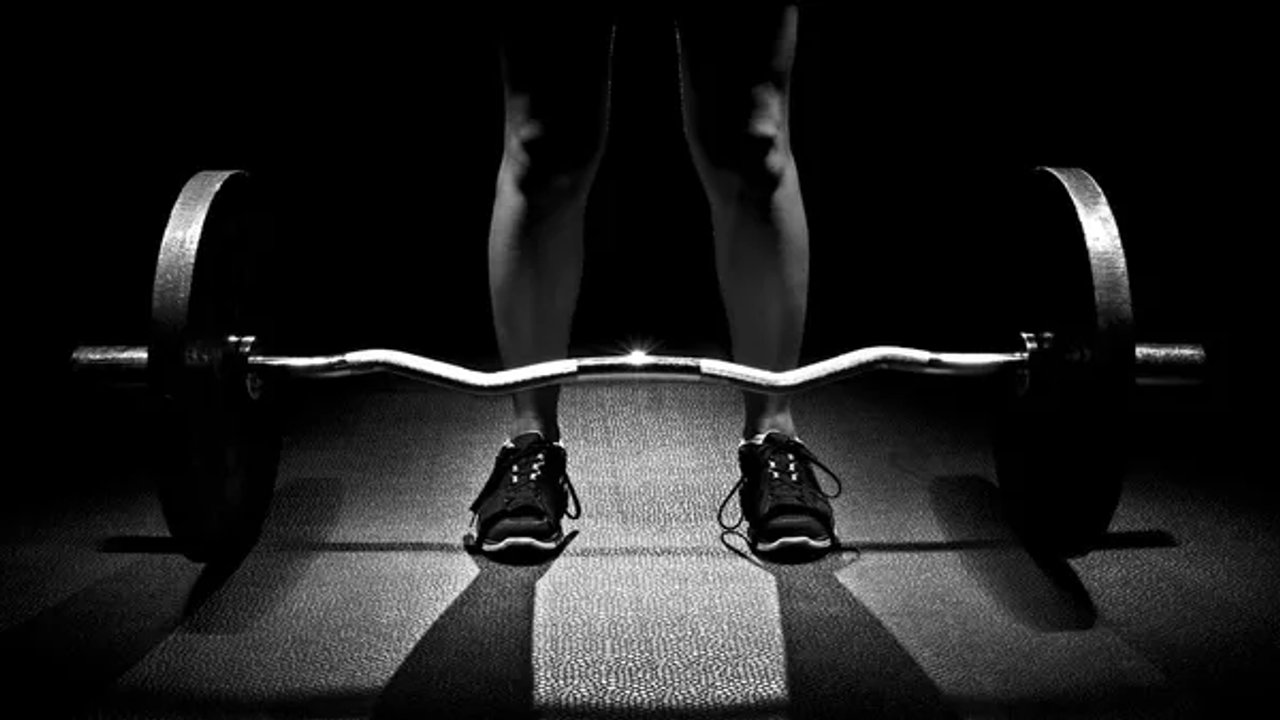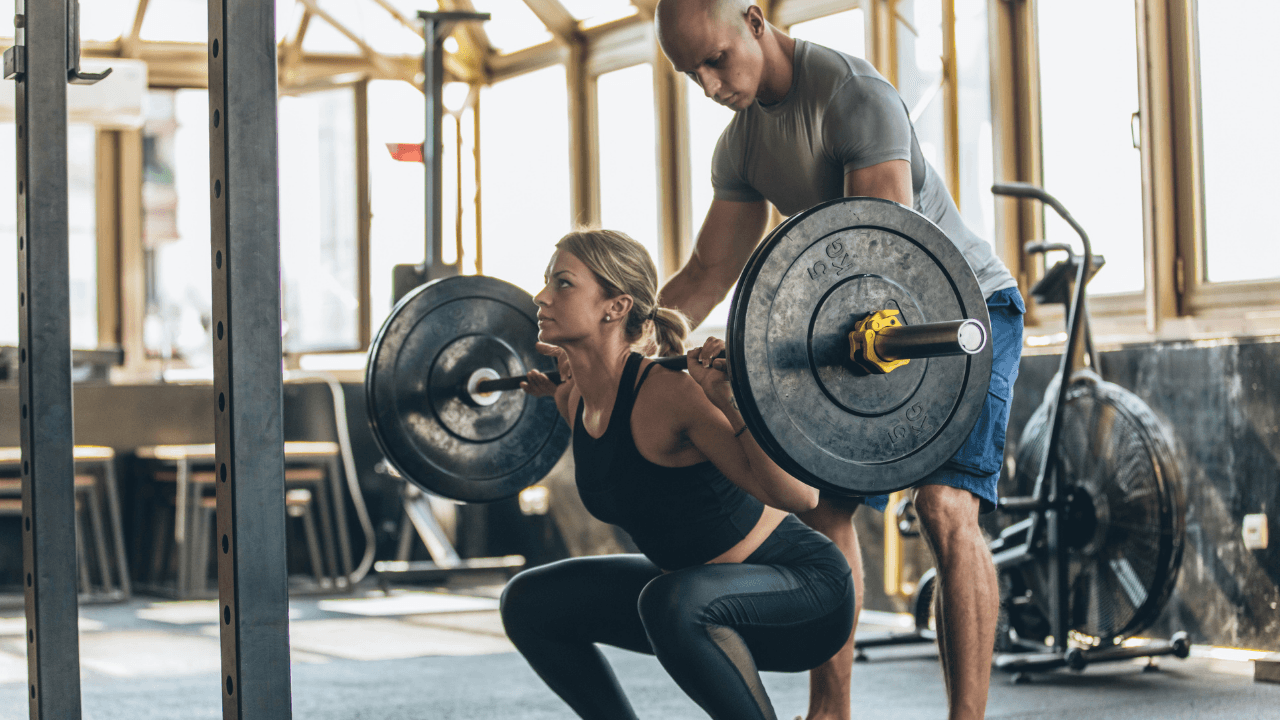
How Hormone-Balancing Foods Can Benefit Female Athletes
You might think that eating hormone-balancing foods is just for those dealing with hormonal imbalances, but as a female athlete, incorporating these foods into your diet can have significant benefits.
By choosing the right foods, you can reduce PMS symptoms, improve energy levels, enhance recovery, balance hormone levels, increase athletic performance, maintain an optimal menstrual cycle, and decrease inflammation.
These foods can support your body's natural hormone production and regulation, helping you feel and perform at your best.
Key Takeaways
- Nutritional strategies play a crucial role in hormonal regulation for female athletes.
- Consuming hormone-balancing foods rich in nutrients and phytochemicals supports hormone balance in female athletes.
- Including omega-3 fatty acids in the diet reduces inflammation and supports hormone production in female athletes.
- Avoiding processed foods and excessive sugar intake is essential for hormone balance and optimal performance in female athletes.
Reduced PMS Symptoms
You can reduce PMS symptoms by incorporating hormone-balancing foods into your diet. Nutritional strategies play a crucial role in hormonal regulation, and certain foods can help alleviate the symptoms of PMS.
For example, consuming foods rich in omega-3 fatty acids, such as flaxseeds, walnuts, and fatty fish, has been shown to reduce the severity of PMS symptoms.

Additionally, increasing your intake of complex carbohydrates from sources like whole grains, fruits, and vegetables can help stabilize blood sugar levels and improve mood swings associated with PMS.
Furthermore, including magnesium-rich foods like spinach, pumpkin seeds, and almonds in your diet can help alleviate bloating and mood disturbances.
Improved Energy Levels
When incorporating hormone-balancing foods into your diet, female athletes can experience improved energy levels through better hormonal regulation and enhanced metabolic function. A nutrient-rich diet plays a crucial role in regulating hormones such as insulin, cortisol, and thyroid hormones, which are essential for energy production and utilization.
Foods rich in omega-3 fatty acids, such as salmon and flaxseeds, can help regulate hormone levels and support metabolic function, leading to sustained energy levels throughout the day. Additionally, consuming complex carbohydrates from sources like whole grains and legumes provides a steady release of energy, supporting endurance and performance during workouts.
Enhanced Recovery
Incorporate hormone-balancing foods into your diet to speed up recovery after intense workouts. Nutrient-dense meals play a crucial role in post-workout nutrition, providing essential nutrients to aid in muscle repair and replenish energy stores.

Consuming a balanced combination of carbohydrates and protein within 30 minutes to an hour after exercise can enhance recovery by promoting glycogen resynthesis and muscle protein synthesis. Opt for whole foods like lean meats, fish, eggs, dairy, quinoa, sweet potatoes, and plenty of colorful fruits and vegetables to ensure you're getting a wide range of vitamins, minerals, and antioxidants.
Additionally, incorporating healthy fats from sources like avocados, nuts, and olive oil can further support the body's inflammatory response and tissue repair. By prioritizing nutrient-dense post-workout meals, you can optimize recovery and prepare your body for the next training session.
Balanced Hormone Levels
To maintain balanced hormone levels, prioritize consuming hormone-balancing foods rich in nutrients and phytochemicals. Nutritional strategies play a crucial role in hormonal regulation, especially for female athletes.
Incorporating foods such as leafy greens, cruciferous vegetables, berries, and flaxseeds can support hormone balance. These foods are rich in nutrients like vitamin C, calcium, and fiber, as well as phytochemicals such as indole-3-carbinol and lignans, which aid in estrogen metabolism and overall hormonal health.
Additionally, including omega-3 fatty acids from sources like salmon and chia seeds can help reduce inflammation and support hormone production. Avoiding processed foods and excessive sugar intake is also essential for hormone balance.

By optimizing your diet with hormone-balancing foods, you can enhance your athletic performance and endurance. Nutrient timing plays a crucial role in maximizing muscle adaptation and overall athletic output. Consuming a balance of macronutrients, such as carbohydrates and protein, at specific times can significantly impact your performance.
Before exercise, focus on consuming easily digestible carbohydrates to fuel your muscles. During and after workouts, prioritize protein intake to support muscle repair and growth. Additionally, incorporating hormone-balancing foods rich in antioxidants and anti-inflammatory properties can aid in reducing exercise-induced oxidative stress and muscle inflammation, ultimately improving recovery and performance.
Optimal Menstrual Cycle
You can support an optimal menstrual cycle by including hormone-balancing foods in your diet. Nutrition strategies play a crucial role in maintaining hormonal balance, which is essential for a healthy menstrual cycle. Consuming a variety of nutrient-dense foods such as leafy greens, fatty fish, and whole grains can provide the vitamins and minerals necessary for hormonal regulation.
Additionally, incorporating exercise routines into your lifestyle can also positively impact your menstrual cycle. Regular physical activity, such as moderate aerobic exercise and strength training, can help regulate hormone levels and improve overall menstrual health.
It's important to note that maintaining a balanced and nutritious diet, combined with a suitable exercise regimen, can contribute to the optimization of your menstrual cycle, enhancing overall well-being and athletic performance.

Decreased Inflammation
Support an optimal menstrual cycle by including hormone-balancing foods in your diet, as this can also contribute to decreased inflammation in the body. Hormone-balancing foods such as fatty fish, flaxseeds, and leafy greens contain essential nutrients like omega-3 fatty acids, antioxidants, and fiber, which have anti-inflammatory benefits.
Omega-3 fatty acids found in fish and flaxseeds have been shown to reduce the production of inflammatory molecules in the body, potentially easing menstrual discomfort and reducing overall inflammation. Antioxidants in leafy greens help combat oxidative stress and inflammation.
Furthermore, a diet rich in whole, unprocessed foods and low in added sugars and trans fats can have a significant dietary impact on reducing inflammation in the body, potentially leading to improved athletic performance and overall well-being.
Frequently Asked Questions
Can Hormone-Balancing Foods Help With Fertility and Reproductive Health in Female Athletes?
Hormone-balancing foods can indeed support fertility and reproductive health in female athletes. Your diet plays a crucial role in regulating hormone levels and overall well-being, which can impact reproductive health.
Are There Specific Foods or Nutrients That Can Help Alleviate Menstrual Cramps and Discomfort?
Like a soothing balm, certain foods and nutrients can alleviate menstrual cramps. Nutritional supplements like magnesium, omega-3 fatty acids, and vitamin B6 have shown promise in reducing discomfort.

Additionally, alternative therapies such as acupuncture and herbal remedies may offer relief.
It's important to consult with a healthcare professional to determine the best approach for your individual needs.
How Do Hormone-Balancing Foods Affect Mood and Mental Well-Being in Female Athletes?
Eating hormone-balancing foods can positively impact your mood, mental well-being, and athletic performance. These foods can help regulate your energy levels, enhancing your overall performance.
They also support cognitive function, helping with focus and stress management. By incorporating these foods into your diet, you can potentially experience improved mood and mental clarity while maintaining your physical stamina and endurance as a female athlete.
Hormone-balancing foods can positively impact hormone-related conditions like PCOS and endometriosis. These foods can help regulate insulin levels and reduce inflammation, which are crucial for managing these conditions.

Additionally, hormone-balancing foods can support a healthy menstrual cycle by providing essential nutrients and promoting hormonal balance. Incorporating these foods into your diet can potentially alleviate symptoms and improve overall hormonal health, making them beneficial for managing hormone-related conditions in female athletes.
Are There Any Potential Side Effects or Risks Associated With Consuming Hormone-Balancing Foods for Female Athletes?
When consuming hormone-balancing foods, it's crucial to maintain nutritional balance to avoid potential risks.
For female athletes, incorporating these foods can support hormone regulation, but excessive consumption may lead to imbalances.
Ensure a varied diet and moderate intake of hormone-balancing foods to mitigate any adverse effects.
Always consult with a nutritionist or healthcare professional to personalize your dietary choices for optimal athletic performance and hormonal health.

Conclusion
So next time you're reaching for a snack, consider choosing hormone-balancing foods to support your athletic performance and overall health.
You might just find that your PMS symptoms decrease, your energy levels improve, and your recovery time shortens. Coincidence? Maybe not.
Give it a try and see the difference it can make in your athletic journey.
Your body will thank you for it.
Statistics
- Eating foods that support hormone balance can help female athletes recover faster from intense workouts.
- Consuming foods that balance hormones can help female athletes reduce the risk of hormonal-related health conditions.
- Female athletes can benefit from hormone-balancing foods to optimize their performance.
- Foods that support hormone balance can contribute to improved cardiovascular health in female athletes.
- Consuming foods that support hormone balance can help female athletes manage stress levels.
- Foods that balance hormones can support optimal bone health in female athletes.
- Hormone-balancing foods can support the regulation of estrogen and progesterone levels in female athletes.
- Hormone-balancing foods can contribute to improved mood and mental well-being in female athletes.
- Eating foods that balance hormones can enhance female athletes' immune function.
- Foods that support hormone balance can help female athletes regulate their menstrual cycle.
External Links
- Eat This, Not That! - Foods That Balance Hormones: Discover a list of foods that can naturally balance hormones, which can be beneficial for female athletes.
- Runner's World - Nutrition for Women: How Eating Right Can Boost Your Performance: Learn about the importance of nutrition, including hormone-balancing foods, for female athletes to optimize their athletic performance.
- NPM Fitness - Your Hormonal Reality: A Guide to Female Hormones & Training: This comprehensive guide provides insights into female hormones and how they relate to training, highlighting the importance of hormone balance for female athletes.
- Harvard Health Publishing - No Need to Avoid Healthy Omega-6 Fats: This article explains the importance of omega-6 fatty acids, found in certain foods, for hormone balance and overall health in female athletes.
- PMC - Effects of Macronutrient Composition and Cycling on Ghrelin, Peptide YY and Resting Metabolic Rate: A Randomized Controlled Trial in Overweight Women: This scientific study evaluates the effects of macronutrient composition on hormonal responses and resting metabolic rate in women, which may be relevant for female athletes.
- Journal of the International Society of Sports Nutrition - Position stand on Androgen and Human Growth Hormone Use: This scientific position stand outlines the considerations and implications of androgen and growth hormone use in female athletes, which relates to hormone balance.
- PMC - Nutritional Strategies to Modulate Adaptive Thermogenesis: Hormonal implications and practical considerations: This scientific article explores nutritional strategies that can affect hormonal balance and thermogenesis, which may be relevant for female athletes.
- Medical News Today - What are the best foods to balance your hormones?: Learn about different foods that can help balance hormones in the body, which can benefit female athletes.
- Healthline - 10 Healthy Herbs and Spices: This article discusses various herbs and spices that can help balance hormones and benefit female athletes.
- American Association of Naturopathic Physicians - Hormone Balancing Diet: This resource provides detailed information on how a hormone-balancing diet can positively impact female athletes.
How To
How to incorporate hormone-balancing foods into your diet as a female athlete
1. Start by adding more fruits and vegetables to your meals. These foods are rich in vitamins, minerals, and antioxidants that can help support hormone balance.
2. Include plenty of whole grains in your diet, such as quinoa, brown rice, and oats. Whole grains provide essential nutrients and promote healthy hormone production.
3. Incorporate healthy fats into your diet, such as avocados, nuts, and seeds. These fats are important for hormone synthesis and absorption.
4. Don't forget about protein! Include lean sources like chicken, fish, and tofu in your meals to support muscle recovery and hormone production.
5. Consider adding hormone-balancing herbs and spices to your dishes, such as turmeric, ginger, and cinnamon. These can help regulate hormone levels.
6. Stay hydrated by drinking enough water throughout the day. Proper hydration is essential for hormone transport and overall health.
7. Limit processed foods and sugary treats, as they can disrupt hormone balance and lead to inflammation.
8. Listen to your body and adjust your diet as needed. Every individual is unique, so pay attention to how certain foods make you feel and make adjustments accordingly.
---
How to create a hormone-balancing meal plan as a female athlete
1. Start by identifying your nutritional needs based on your activity level and training schedule. This will help you determine your calorie and macronutrient requirements.
2. Plan your meals around a variety of hormone-balancing foods, including fruits, vegetables, whole grains, lean proteins, and healthy fats.
3. Aim for balanced meals that contain a combination of carbohydrates, proteins, and fats to support energy levels and hormone production.
4. Prioritize nutrient-dense foods that are high in vitamins, minerals, and antioxidants, which can help optimize hormone balance and overall health.
5. Meal prep in advance to ensure you have nutritious, hormone-balancing meals readily available. This can help you stay on track with your eating plan.
6. Don't forget to include healthy snacks, such as Greek yogurt, nuts, and fruit, to keep your energy levels stable throughout the day.
7. Listen to your body's hunger and fullness cues, and adjust your portion sizes accordingly. It's important to fuel yourself properly without overeating.
8. Consult with a registered dietitian or nutritionist who specializes in sports nutrition to help you create a personalized hormone-balancing meal plan.
---
How to stay consistent with hormone-balancing foods as a female athlete
1. Set specific goals for incorporating hormone-balancing foods into your diet. Whether it's adding one new vegetable to each meal or having a hormone-balancing snack every day, having measurable goals can help you stay accountable.
2. Keep a food journal to track your intake of hormone-balancing foods. This can help you identify patterns and areas for improvement.
3. Find healthy and delicious recipes that incorporate hormone-balancing ingredients. This will make eating these foods more enjoyable and sustainable.
4. Meal prep and plan your meals in advance. By having hormone-balancing meals readily available, you are less likely to rely on unhealthy options when you're pressed for time.
5. Create a support system by involving family and friends in your journey. Encourage them to try hormone-balancing foods with you and share recipe ideas.
6. Educate yourself about the benefits of hormone-balancing foods. Understanding how these foods can improve your athletic performance and overall well-being can serve as motivation to stay consistent.
7. Experiment with different cooking methods and flavor profiles to keep your meals interesting. Varied and flavorful meals are more likely to be enjoyed and repeated.
8. Stay positive and be patient with yourself. Incorporating new habits takes time and effort. Celebrate your progress and focus on the long-term benefits of eating hormone-balancing foods.
---
How to educate yourself about hormone-balancing foods as a female athlete
1. Start by reading reputable books and articles on the topic. Look for evidence-based information from trusted sources such as nutrition experts or registered dietitians.
2. Follow blogs and websites that focus on nutrition and hormone balance. These platforms often provide informative articles, research summaries, and practical tips.
3. Consider taking online courses or webinars that cover the science behind hormone balance and the role of nutrition in supporting it.
4. Attend seminars or workshops hosted by nutrition experts or sports organizations that delve into the topic of hormone-balancing foods for female athletes.
5. Consult with a registered dietitian or nutritionist who specializes in sports nutrition and hormone balance. They can provide personalized guidance and answer specific questions.
6. Stay up to date with the latest research by subscribing to scientific journals or newsletters focused on sports nutrition and hormone health.
7. Engage in online forums or communities where individuals share their experiences with hormone-balancing foods and offer support and advice.
8. Experiment with different hormone-balancing foods in your own diet and track how they make you feel. This hands-on approach can help you better understand the effects of these foods on your body.
---
How to adapt hormone-balancing foods to your specific dietary preferences as a female athlete
1. Start by identifying the foods within your dietary preferences that naturally support hormone balance. For example, if you follow a vegetarian diet, focus on plant-based sources of protein like legumes and tofu.
2. Research substitutes for any hormone-balancing foods that you may not enjoy or may not be suitable for your dietary preferences. There are often alternatives available that can provide similar benefits.
3. Explore different cuisines to find hormone-balancing foods that align with your dietary preferences. For example, Mediterranean and Asian cuisines often incorporate foods that support hormone balance.
4. Experiment with recipes and adapt them to your dietary preferences. For example, if a recipe calls for animal protein but you follow a vegan diet, try substituting it with plant-based protein alternatives.
5. Consult with a registered dietitian or nutritionist who specializes in your specific dietary preferences. They can provide personalized guidance and tips on how to incorporate hormone-balancing foods into your diet.
6. Get creative in the kitchen and try new recipes that align with your dietary preferences. There are plenty of resources available online for specific dietary needs, such as gluten-free or dairy-free hormone-balancing recipes.
7. Don't be afraid to modify existing recipes to suit your preferences. Use hormone-balancing foods as a base and add ingredients that you enjoy to create dishes that are tailored to your taste.
8. Focus on variety and explore a wide range of hormone-balancing foods within your dietary preferences. This will help ensure you get a diverse range of nutrients and flavors.
 HealthWellnessFitnessBeautyVideosPrivacy PolicyTerms And Conditions
HealthWellnessFitnessBeautyVideosPrivacy PolicyTerms And Conditions
